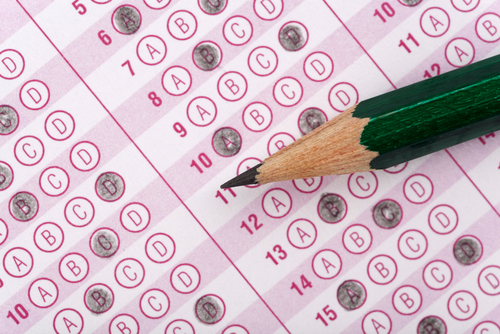California plan to move bar exam to Kaplan sent back to state supreme court

California’s Committee of Bar Examiners approved launching a propriety bar exam to be created by Kaplan Exam Services for the February administration and will submit updated petitions for the California Supreme Court to reconsider. (Image from Shutterstock)
California’s Committee of Bar Examiners approved launching a propriety bar exam to be created by Kaplan Exam Services for the February administration and will submit updated petitions for the California Supreme Court to reconsider.
The committee’s vote on Sept. 30 followed the court’s rejection of the plan in mid-September to create a 200-question multiple-choice exam that could be administered remotely. Separately, a letter from deans at 15 ABA-accredited law schools to the state Supreme Court stating their “grave concerns” about the ability to develop the exam “in a responsible manner” in time for the February administration.
While the committee is ultimately responsible for the bar exam’s format, scope, content, questions and grading process, according to the California Rules of Court, it must comply with the court’s ruling.
“By formally approving Kaplan as the vendor for the new multiple-choice question exam, Meazure Learning as our partner for exam delivery and proctoring and a transition to a hybrid remote/test center exam format, the CBE has acted in support of exam takers’ preferences for exam administration while also addressing the financial challenges facing the state bar’s admissions fund,” Brandon Stallings, board of trustees chair, wrote to the ABA Journal. “We will promptly submit updated petitions to the California Supreme Court for its consideration based on the CBE’s actions.”
In August, the state bar signed an $8.25 million, five-year contract with Kaplan to create a new exam with remote options instead of using the National Conference of Bar Examiners-created exam, which mandates in-person testing. Applications for the bar opens Oct. 1, according to the state bar’s website.
Although some have raised concerns that there is not enough time to develop and vet the new exam, Susan Smith Bakhshian, director of bar programs and clinical professor at the Loyola Law School in Los Angeles, noted during the public comment portion of the meeting that the state can prioritize the project, working it full time.
“Critics of the experiment’s fairness overlook the many existing exam’s inequalities,” she added. “For example, the ability to study full time, seating and proximity to restrooms and affording a hotel during the exam all create advantages for some and not for others.”
Candidates would welcome the move, said Audrey Ching, program director of the state bar’s office of admissions, during a presentation. “In post-exam surveys for every bar exam since the pandemic, 75% or more of the applicants comment that they would like to have a remote test or test in small test centers instead of the standard testing sites we’ve been using.”
The state has been looking at the best way to test bar candidates for minimum competency since 2018, when the State Bar Board of Trustees created the California Attorney Practice Analysis Working Group. But there is pressure to move forward on changes as the state bar’s admissions fund faces insolvency in 2026, with its 2024 budget forecasting a $3.8 million deficit while projecting it will end this year with $3.3 million in reserves.
See also:
California signs deal with Kaplan for bar exam with plan for potential copyright issues



